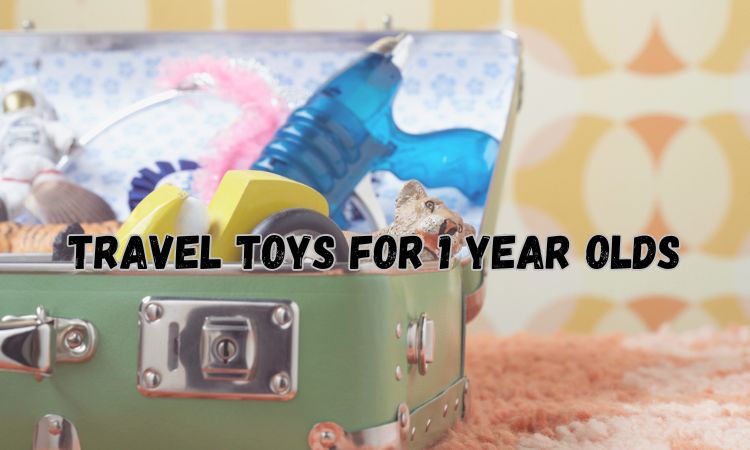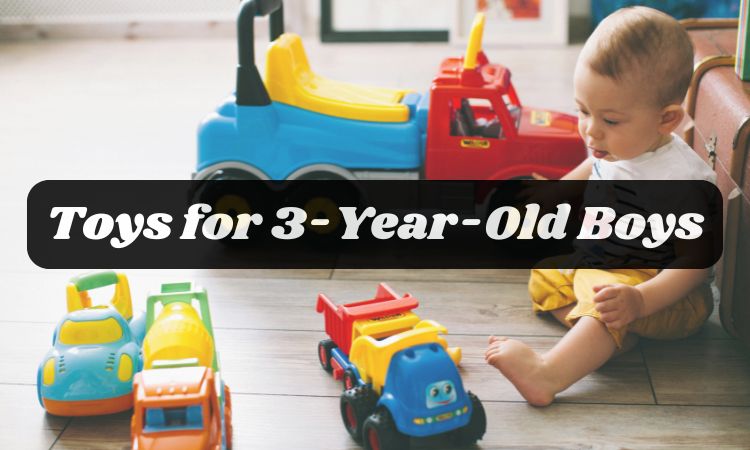How to Get an Overtired Newborn to Sleep: 5 Proven Tips
You finally get your baby down for a nap, only to find them crying again just a short while later. They're rubbing their eyes, arching their back, and nothing seems to calm them. It’s moments like these that often trace back to one thing—your newborn might be overtired. Missing those early sleepy cues can lead to crankiness and an even harder time settling down, creating a cycle that’s tough to break.
In this blog, we’ll look at why newborns get overtired, how to spot the signs before they escalate, and the most effective ways on how to get an overtired newborn to sleep. You’ll also learn simple tricks to prevent overtiredness in the first place so you and your little one can enjoy more peaceful moments together. Keep reading!

Alt: Overtired newborn
Why Newborns Get Overtired?
Newborns can become overtired for a variety of reasons. Unlike older children or adults, they have very short awake windows—often just 45 minutes to an hour in the early weeks. When those windows are missed, babies can become fussy and harder to soothe.
Here are some common causes of newborns being overtired:
l Lack of a Sleep Schedule: Newborns don’t come with an internal clock, so they rely on caregivers to watch for their sleep cues. Without a pattern, it’s easy for them to stay awake too long.
l Overstimulation: Bright lights, loud noises, or too much activity can quickly overwhelm a newborn, leading to overtiredness.
l Hunger or Discomfort: If a baby is hungry, has gas, or needs a diaper change, they may have trouble settling, leading to increased fatigue.
l Insufficient Daytime Sleep: Skipping naps or having too-short naps during the day can cause a newborn to miss out on critical rest. So, they will be overtired and harder to settle at night.
Signs of an Overtired Newborn
Newborns can’t say they’re tired, but their behaviors and cues often reveal it. Fussy crying, trouble settling, or frequent yawning can all point to overtiredness. While each baby is unique, there are some common signs you can learn to recognize:
1. Crying or Fussiness: One of the most obvious signs, overtired babies often cry inconsolably or appear very fussy for no clear reason.
2. Rubbing Eyes or Pulling Ears: Physical cues like rubbing eyes, tugging at ears, or arching their back can indicate that they’re too tired.
3. Difficulty Settling Down: They might resist being held or rocked and seem restless no matter what you do.
4. Unusual Alertness or Hyperactivity: While it may seem counterintuitive, overtired newborns can appear very alert or wired. Their body is struggling to compensate for missed sleep.

Alt: How to soothe an overtired newborn
How to Soothe an Overtired Newborn to Sleep?
Once a baby becomes overtired, helping them calm down and drift off to sleep can be challenging, but it’s not impossible. Here are some soothing tips to calm your newborn when they're overtired:
Create a Calm Environment
Newborns are very sensitive to their surroundings, so keeping things cozy and relaxed helps immensely. Dim the lights, close curtains, and keep noise levels low. Avoid bright screens or sudden noises, which might stimulate their senses and delay sleep. Adjusting the room temperature slightly cool, around 68–72°F (20–22°C), ensures your baby stays comfortable without overheating.
Swaddle Your Baby
Babies love feeling snug and secure, which reminds them of the comfort inside the womb. Swaddling provides gentle pressure, reducing the startle reflex and making it easier for them to calm down. Wrap your newborn snugly but gently in a lightweight, breathable blanket, making sure there's enough room for hips to move naturally. Keep the fabric away from their face and ensure it's not too tight.
Use Gentle Motion
Babies often respond well to soothing, repetitive movements. You can try slowly rocking them in your arms, swaying side to side, or walking around the room while gently bouncing. A baby swing or glider can also provide a consistent motion that encourages relaxation. The gentle rhythm is calming and reassuring, making it a great way to settle a fussy, overtired newborn.
Use White Noise
Newborns find steady, soft noises very calming because the noise mimics the consistent sounds from their time in your womb. White noise machines, fans, or even a quiet recording of ocean waves can help block out sudden sounds and lull your baby into relaxation. There are also some toys for 1 year old on the market, like the Alilo bunny, which includes soothing audio features and calming lights. They can provide comfort and encourage peaceful sleep.

Alt: Toys for 1 year old
Give a Feed
Sometimes an overtired baby just needs the comfort of a feeding to help them settle down. Feeding not only satisfies their hunger, but it also provides the soothing, rhythmic sensation of suckling. Whether it’s breastfeeding, bottle feeding, or offering a pacifier afterward, the comforting routine can help your baby relax. The comfort and closeness from feeding can help lull your overtired newborn gently off to sleep.
How to Prevent a Baby from Getting Overtired?
To help prevent your baby from becoming overtired, pay close attention to their natural sleep cues and respond promptly. By taking simple steps to help their wind down, you can help ensure they get the rest they need. Here’s how:
1. Watch for Sleep Cues: Early signs like yawning, staring off into space, or a slight frown indicate your baby is ready for sleep. Putting them down at the first sign of tiredness can prevent overtiredness from setting in.
2. Create a Consistent Routine: While newborns don’t follow strict schedules, having a loose daily rhythm—such as feeding, playtime, and then nap—helps your baby anticipate when it’s time to sleep.
3. Limit Stimulation Before Bedtime: Keep the environment calm and quiet as bedtime approaches. Too much activity or screen time can make it harder for your baby to wind down.
4. Ensure They’re Comfortable: Check their diaper, ensure they’re well-fed, and dress them in appropriate clothing for the room’s temperature. A comfortable baby is more likely to settle easily.
5. Adjust Awake Windows as They Grow: As your baby gets older, they can handle slightly longer awake times. Gradually lengthening these periods helps prevent overtiredness and makes naptime transitions smoother.
Conclusion
Helping your little one settle doesn't need to be stressful once you know how to get an overtired newborn to sleep. By recognizing the signs early and using soothing techniques like swaddling, gentle motion, or soft white noise, you can make bedtime peaceful again. Stay consistent with calming routines and preventive tips to help your baby rest comfortably. Remember, patience and warmth go a long way—soon you'll both be enjoying calmer nights and happier mornings together.
FAQs about How to Get an Overtired Newborn to Sleep
What to do when the baby is overtired and won’t sleep?
Start by calming the environment—dim the lights and turn on a white noise machine. Use gentle motions like rocking or swaying, and try swaddling to provide comfort. Sometimes a pacifier or soft shushing sounds can help them relax and drift off to sleep.
Will an overtired newborn eventually sleep?
Yes, eventually most overtired newborns will fall asleep. However, the process may take longer, and their sleep might be more restless. Helping them calm down first can lead to a deeper, more restorative sleep.
What if my newborn stays awake for hours?
If your newborn is awake for a long stretch, try to gently guide them back to sleep by creating a calm, quiet environment. Offer a feeding if they seem hungry, and avoid overstimulating them. Often, addressing their immediate needs and maintaining a consistent routine will help them settle.
How do you get an overtired, overstimulated baby to sleep?
Reduce any sources of stimulation, such as bright lights or loud noises. Use soothing techniques like swaddling, gentle rocking, and shushing. Stay consistent and patient, allowing your baby to gradually relax and fall asleep.







Share and get 5% off!
Simply share this product on one of the following social networks and you will unlock 15% off!